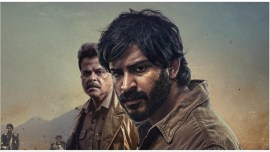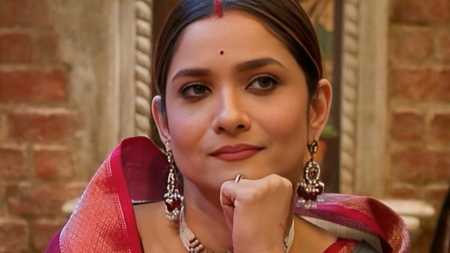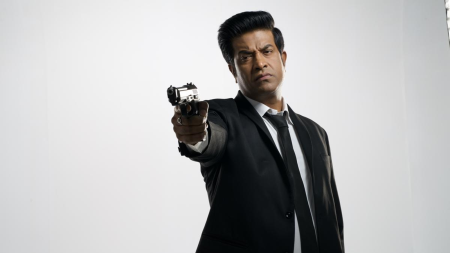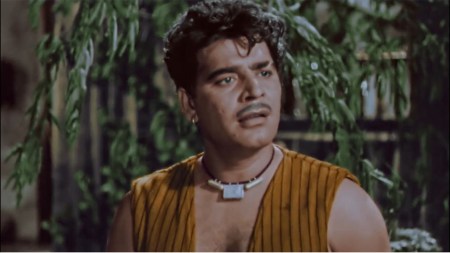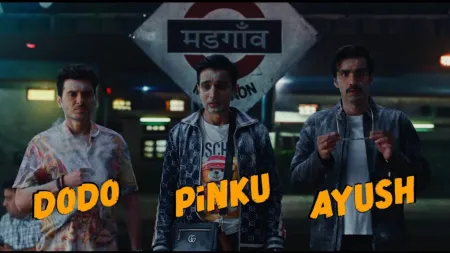By now, it is obvious that Bejoy Nambiar, an erstwhile assistant director of Mani Ratnam, is also his fanboi. Calling his films derivatives of Mani’s filmography is a dated statement, and the director might perhaps wear it as a badge of honour. However, Bejoy, more so with Por, seems to be only emulating the style. There’s always a sense of ‘What would Mani Ratnam do?’ while composing a frame, lighting it, and coming up with characters. But not so much while writing the scripting and fleshing out those characters. Had that been the case, Por and many of his previous ventures would have been the perfect ode to his mentor–which seems to be the idea.
Por (War) is self-explanatory as a title. It is about two warring protagonists. It is like Mani Ratnam’s Agni Natchathiram. That’s why Arjun Das is ‘Prabhu’. It is also like Vasanth’s Nerukku Ner (produced by Mani Ratnam). As the film opens, we see Prabhu (Arjun Das) and Yuva (Kalidas Jayaram) fighting with bloody faces, and we cut to the flashback of how the two ended up there. The film is divided into chapters for reasons unknown because if clarity was the purpose, it didn’t help this mess.

Prabhu is the most pathetic character in the film. He keeps failing his finals because he is unable to move on from the college and his friends (living and dead). That doesn’t matter because he seems to be well-off. He runs a beach restaurant, which he prefers to call a ‘shack’. He is in love with a social activist, an alumnus of the institution, who hasn’t moved on with her life either. All her activism is around the college. She is seen walking around with a transgender person. We get to see Ambedkar grafitti when she is in the frame. She keeps talking about ‘rights’… you get the drift. She champions a Dalit student for the student leader position, and her opposition is a daughter of a politician, who can’t afford to lose. So, here the film morphs into Mani Ratnam’s Aayudha Ezhuthu (and that’s why Kalidas Jayaram is Yuva). While Aayudha Ezhuthu continues to be an entertaining watch, thanks to the dialogues and well-etched characters, everything in Por is flimsy. The only trait it shares with Mani Ratnam’s multi-starrer is shallow politics. We don’t really know the politics of these students or their issues. Audience has to take everything at the face value, because that’s what the film cares about–the exterior.
We then have Yuva, the freshman, who was abused as a child in school because of a mistake made by Prabhu, who was his senior in his boarding school as well. He says, “I don’t know if it is chance or fate that brought us together again.” I would say bad and convenient writing. Be it Yuva or Prabhu or the numerous other characters in Por, none of them are real people. The protagonists lack motivation, their wants are silly and emotions are forced. The conflict is pointless. For example, Prabhu and his friends are shown to be traumatised by the suicide of their friend, but we couldn’t care less, because we know nothing about this person, except for a boring monologue about his dead mother. The director has to do more than that if he wants us to sympathise with his characters–just using suicide as a trump card doesn’t cut.
Or if the idea is to make a film like Richard Linklater’s Dazed and Confused, where the camera just loiters around with characters, Por needed such interesting characters like we get in the American college drama. Here, it is all cardboard cutouts, who lack the vigor of youngsters and are too silly to be grownups. They are just products of vacuous writing. In essence, the whole film is just a build-up to the last chapter, Por. All the students in the first year and the seniors fight while the politicians try to exploit the situation. Bejoy has bet everything on this showdown, which is a string of many long shots. Undoubtedly, strenuous effort has gone into it. Perhaps, a lot could be said in praise of this technical brilliance. But beyond this cool facade of drone shots and visual brilliance, there’s nothing to this film. Maybe, Bejoy enjoys taking these ‘cool’ shots, but he should stop being selfish and ensure the audience enjoys them too.
Disclaimer: The copyright of this article belongs to the original author. Reposting this article is solely for the purpose of information dissemination and does not constitute any investment advice. If there is any infringement, please contact us immediately. We will make corrections or deletions as necessary. Thank you.
